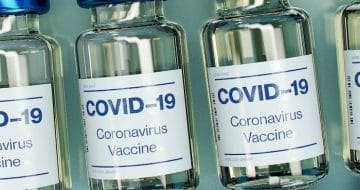Bristows’ Gregory Bacon on his transition from academia to IP and what STEM students can offer law firms

Gregory Bacon, partner and patent litigation specialist at Bristows, is well-placed to discuss a career change from science to law. He completed a PhD in neuroscience at Oxford University and spent time as postdoctoral researcher at King’s College London.
Intellectual property is often considered one of the areas of law most accessible to those with a background in science, technology, engineering and mathematics (STEM). The highly technical nature of projects in this area offers an array of challenges for those with puzzle-oriented minds.
Bristows represents huge clients at the cutting-edge of the science and technology sector, working with mega-brands like Google, Facebook and Samsung. They also have an impressive life sciences client base and the firm worked with AstraZeneca and Oxford University on their Covid jab during the pandemic. Bringing new products and technologies to the commercial market can be a difficult process and Bacon specialises in helping clients navigate disputes over their patents.
He describes a case he is currently working on for a drug developed and licensed to treat multiple sclerosis, a lifelong condition affecting the brain and spinal cord. “Treatments available still don’t cure the disease, but they can significantly reduce underlying autoimmune reactions and slow disease progression,” he explains. “My client, a pharmaceutical company, developed and sells one of these treatments. Earlier this year, we made some new case law in relation to patent rights in the UK for that product, and whether these can be asserted before the patent is granted.” Being an effective lawyer means coming up with solutions for your client, including sometimes ones that have not been tried before. Another case Bacon is working on involves a dispute between two pharmaceutical companies as to whether contractual royalties are payable in relation to a product that is licensed and sold by one of them for the treatment of rare forms of childhood epilepsy.
“Whilst a STEM background is not a requirement to be a good patent lawyer”, Bacon continues, “it helps to have a basic grounding of scientific knowledge.” He is quick to point out that the niche knowledge from his PhD is often not as helpful as the ability to interpret evidence. “Being able to take data and understand it is key. For example, you need to be able to read scientific literature and understand how the information in that article can support your case or maybe actually supports the other side’s case!” Bacon says.
Enthusiasm for learning about technology is also an important quality for this kind of work, which is often something that STEM students develop through their studies. He says:
“You need to want to keep learning about the technology as well as about the law. So when you get a new project on a chemical you’ve never heard of before or an interaction with an organ that you’ve never dealt with before, you think this sounds really interesting — I want to get to know more!”
Bacon acknowledges that his transition from science into law is made more unusual by his direct route. “Strangely, I didn’t go for a vacation scheme, I went straight for a training contract. I was offered an interview here at Bristows 20 years ago, and the interview went well.” After accepting their offer of a job and completing his conversion course, Bacon started his training contract with the firm. “I just loved every aspect of it, every seat!” he reveals. But his interest in patent law had already taken root and after qualifying, he was offered a permanent position in their patents team.
After twenty years with Bristows, Bacon’s enthusiasm for what he does has in no way diminished. He describes finding an unexpected source of enjoyment in the management responsibilities that come with being a partner. “It is quite an unusual step to go from not having any management responsibilities to having almost the full suite of management responsibilities,” he explains. “It brings with it a whole host of extra skills that you have to have to develop to be a partner. After eight or ten years of your post-qualification career, you take on all these new responsibilities: training junior colleagues, recruitment, winning client pitches and keeping clients happy. I think I enjoy this almost as much as doing the fee-earning work for the clients.”
This split between his responsibilities as a fee earner and as a partner is also something that characterises his daily work. “My day is split around 70:30. Seventy percent of my time is spent doing legal work, calls with clients, deciding on strategy, drafting documents, preparing cases for court, reading technical documents and speaking with international lawyers. Then the remainder of my time is involved in the management of the group, my department, and the wider firm. This includes ensuring my junior colleagues have enough work and they’re getting enough exposure to the right levels of work. And some general admin of course!”
Considering his own career journey, what advice would he give to students looking at making the transition from STEM to law?
“Do your research,” Bacon stresses. “Try and go to an open day or a law fair. If you can really get to see the firm as it operates behind the scenes, you’ll get a better feel for what the job looks like. That’s important because if you’re a STEM student, you’re looking at around a four-year process before you’re qualified as a solicitor, and you’ve got something to show for all that work. So do the research and make sure it is something you want to invest four years of your time into.”
Gregory Bacon will be speaking at ‘STEM Focus: Life as an intellectual property lawyer — with Bristows’, a virtual student event taking place on Thursday 20 October. You can apply to attend the event, which is free, now.
About Legal Cheek Careers posts.

